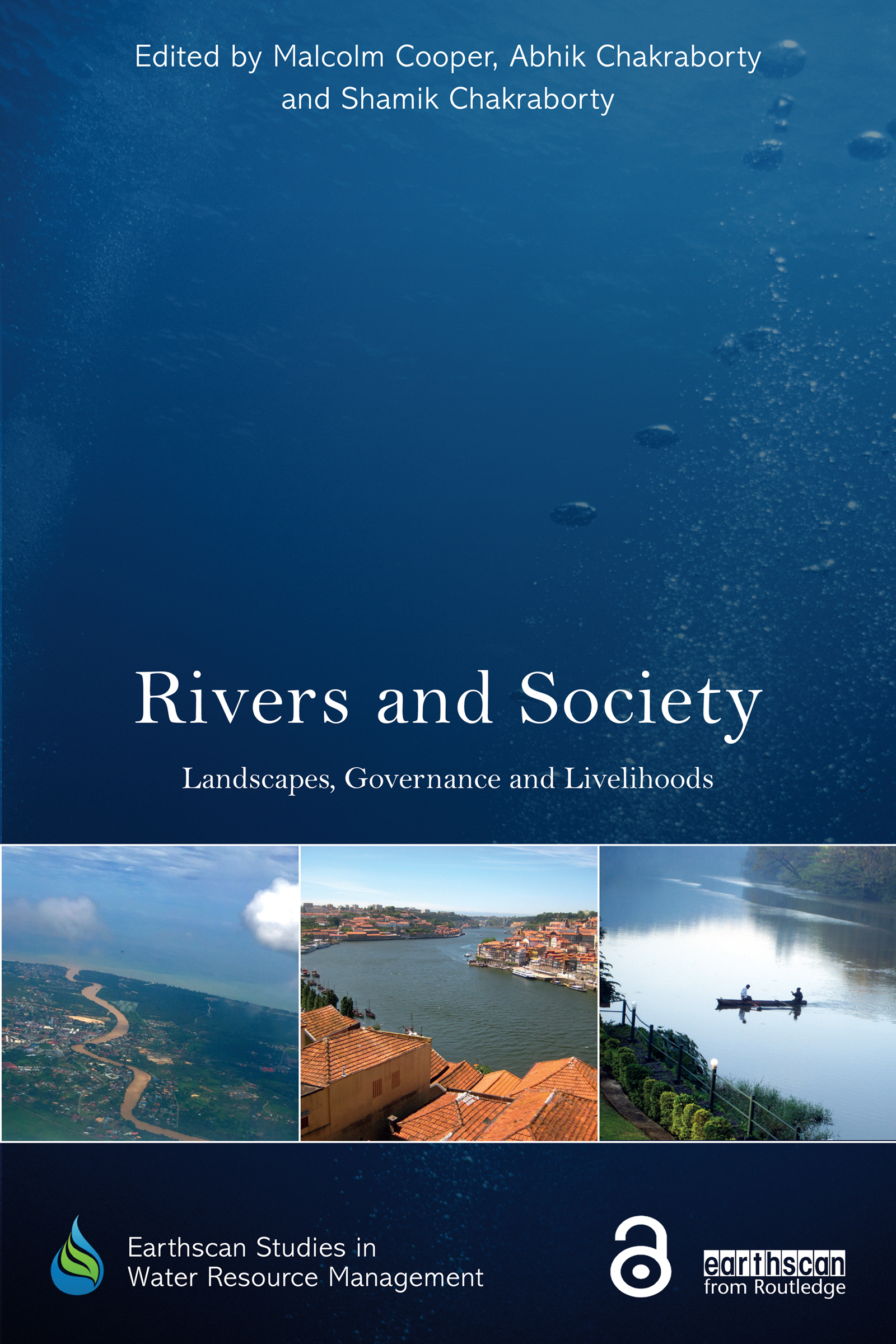Rivers and Society
Proposal review
Landscapes, Governance and Livelihoods

Contributor(s)
Cooper, Malcolm (editor)
Chakraborty, Abhik (editor)
Chakraborty, Shamik (editor)
Language
EnglishAbstract
Rivers and their watersheds constitute some of the most dynamic and complex landscapes. Rivers have sustained human communities, and human societies have utilized and altered river flows in a number of ways for millennia. However, the level of human impact on rivers, and on watershed environments, has become acute during the last hundred years or so. This book brings together empirical research and theoretical perspectives on the changing conditions of a range of river basin environments in the contemporary world, including the history and culture of local societies living in these river basins. It provides theoretical insights on the patterns and nature of the interaction between rivers and their use by human communities. The chapters are written from a variety of positions, including environmental science, hydrology, human ecology, urban studies, water management, historical geography, cultural anthropology and tourism studies. The case studies span different geographical regions, providing valuable insight on the multifaceted interactions between rivers and our societies, and on the changing riverscapes in different parts of the world. Specific detailed examples are included from Australia, Brazil, France, India, Iran, Japan, the Netherlands, New Zealand, South Africa, UK and USA.
Keywords
Abhik Chakraborty; Alesia Maltz; Andrea Farminer; Dean P. Good Eagle Fox; darling; Eveline R. de Smalen; environmental; environments; flow; Graeme Evans; heritage; Jeremy S. Eades; Kazem Vafadari Mehrizi; Lucigleide Nery Nascimento; murray; Ronnie Mckenzie; resources; riverine; Shamik Chakraborty; Sharanya Sethuram; system; T.S. McMillin; Valerie Behiery; waterDOI
10.9774/gleaf.9781315680088ISBN
9781315680088Publisher
Taylor & FrancisPublisher website
https://taylorandfrancis.com/Publication date and place
2018Imprint
RoutledgeSeries
Earthscan Studies in Water Resource Management,Classification
Human geography
